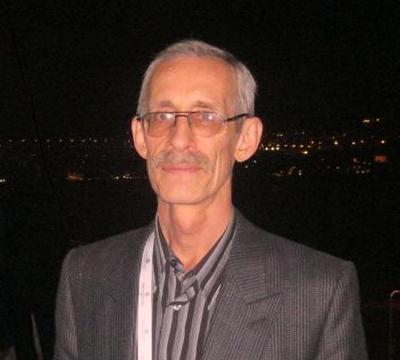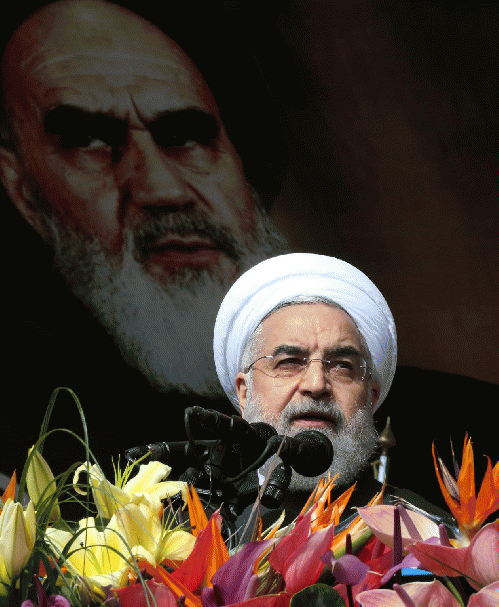All 30 reformists in Tehran won in Iran's highest turn out, but then Ayatollah Khamenei issued a fatwa declaring voting a religious obligation, endorsed all candidates, and congratulated Iranians on the elections. "I thank Iran's wise and determined nation, and I hope the next parliament will act responsibly towards people and God." Iranians "showed the bright and powerful face of a religious democracy to the world. These are sensitive times and the future parliament will have a heavy responsibility." He even asked those who don't believe in the Islamic Republic to vote, because the government provides security for all.
In the Assembly of Experts election, both Rafsanjani and Rouhani were elected--their 'parties' People's Experts and Hope won 19 and 27 seats respectively--giving them a majority, and putting them in a strong position to determine who the next supreme leader will be.
Setback to 'principalists'?
No one in Iran is against ending the stand-off with the West and sanctions. Yes, the conservatives are critical, worrying that the US is already planning a scenario to impose sanctions again, that it is just playing a game. Iranians have good cause to distrust Uncle Sam. So the choice was more between optimism and caution.
None of Iran's three main political camps--reformists, independents, or principalists has an outright majority in the 290-seat legislature. For the West, the interpretation is that while the election itself was honest, the electoral slate was rigged, and that reformists grudgingly allowed to run -- won. That the high electoral turn out shows that Iranians use any chance to protest their Islamic state.
The reality is that the more liberal candidates (in Tehran) are not the country. What's most important for the other 260 seats in parliament is local affairs, regional issues such as infrastructural and economic conditions (employment, housing, etc.). There are still 70 seats to be contested in a runoff vote in April.
Finessing facts
Iran's electoral turn out is traditionally high. Last time -- 75%. This time it was probably closer to 80%, with some polls staying open to midnight in Tehran. Contrast this with the US. Only 55% of Americans voted in the 2008 presidential election. The turnout in elections has varied over the years from a low of 49% in 1996 to a high of 63% in 1952. Most countries--86 around the world--have a higher turnout rate.
Both Republicans (and Canada's Conservatives) have schemed when in power on 'electoral reform' to limit voters' rights, counting on their redneck constituents to be included on tightened lists without problems. Yes, democracy for right wing cronies. Some countries, such as Uruguay and Australia, have compulsory voting, though there is no evidence that this radically alters the outcome of an election. What is important is that there is a real choice.
What about human rights? There is always room for criticism on that count. But 60% of university students are women. The reform list for Tehran included eight women, all of whom were elected. 20 women are expected to win seats in the parliament, a record number for the Islamic republic. Of the 5,000 candidates in the elections, 500 were women. After his election as president in 2013, Rohani appointed female vice presidents--for women, legal affairs, and the environment.
The International Trade Union Confederation recently protested against the conviction of trade union activists charged with "activities against national security and disturbing public peace and order by participating in an illegal gathering". But there is context. There are independent unions, but Islam frowns on creating divisions in society that cause strife. If everyone is a sincere Muslim, then there should be social justice built into us, and no need for confrontational 'class struggle'. It is the West, where capitalism and greed became the 'golden calf', where individual reigns supreme, requiring class struggle. Just as the Soviet Union argued this line, and didn't fit the western model, neither does Iran.
The essence of Iranian political discourse is: ape the West or struggle to mold democracy in an Islamic context.
Iranian populism
On many issues, Iran rates favorably with the West. Though plagued from the start by a brutal and senseless war launched by Saddam Hussein in 1980 (enthusiastically abbetted by the West), there is still much to admire in post-revolutionary Iran:
* Peasants were given land and created thousands of cooperatives.
* Agricultural prices were raised and the country became self-sufficient in cereal production.
* The literacy campaign meant all Iranians can now read and write.
* Roads, electricity, clean water, and health clinics came to villages.
* The poorest peasants now have some access to modern consumer goods.
* Life expectancy went from less than 56 in the 1970s to70 in 2000.
* Infant mortality went from 104 per 1,000 to 25 per1,000.
* The UN praised Iran's birth control program which began in the 1990s.
* For workers, basic goods are subsidized, there are labor laws regulating the work week and providing job security, and May Day rallies are celebrated withsocialist slogans.
(Note: You can view every article as one long page if you sign up as an Advocate Member, or higher).






